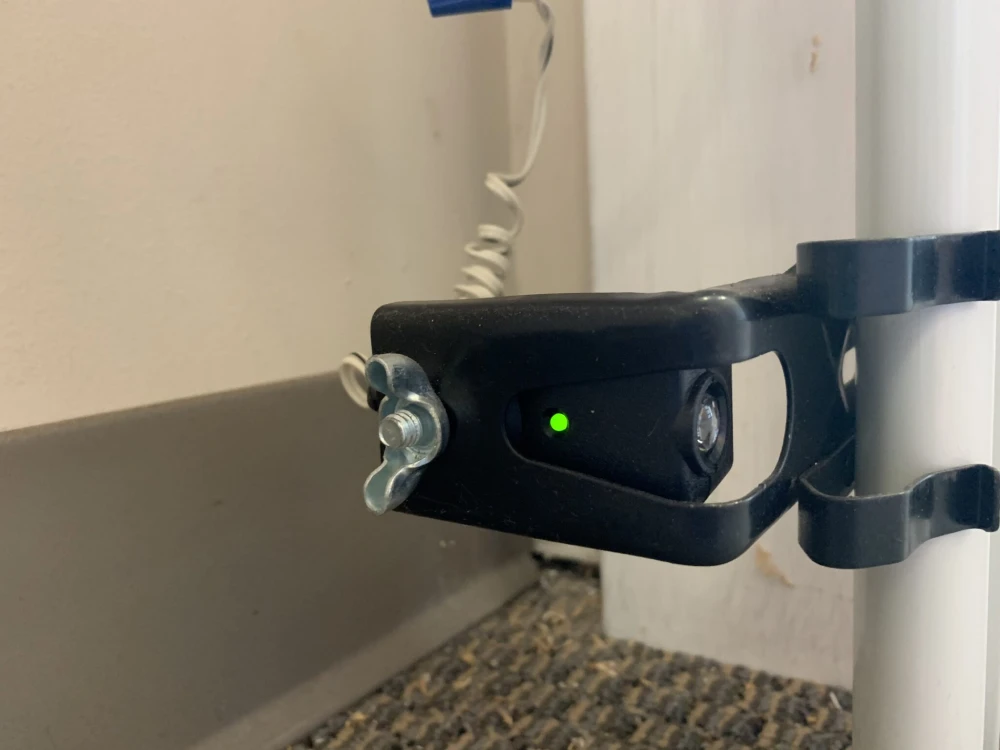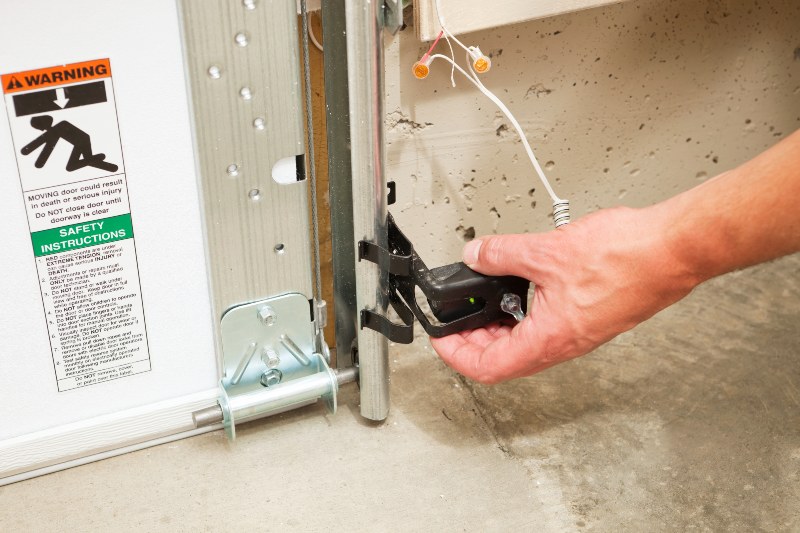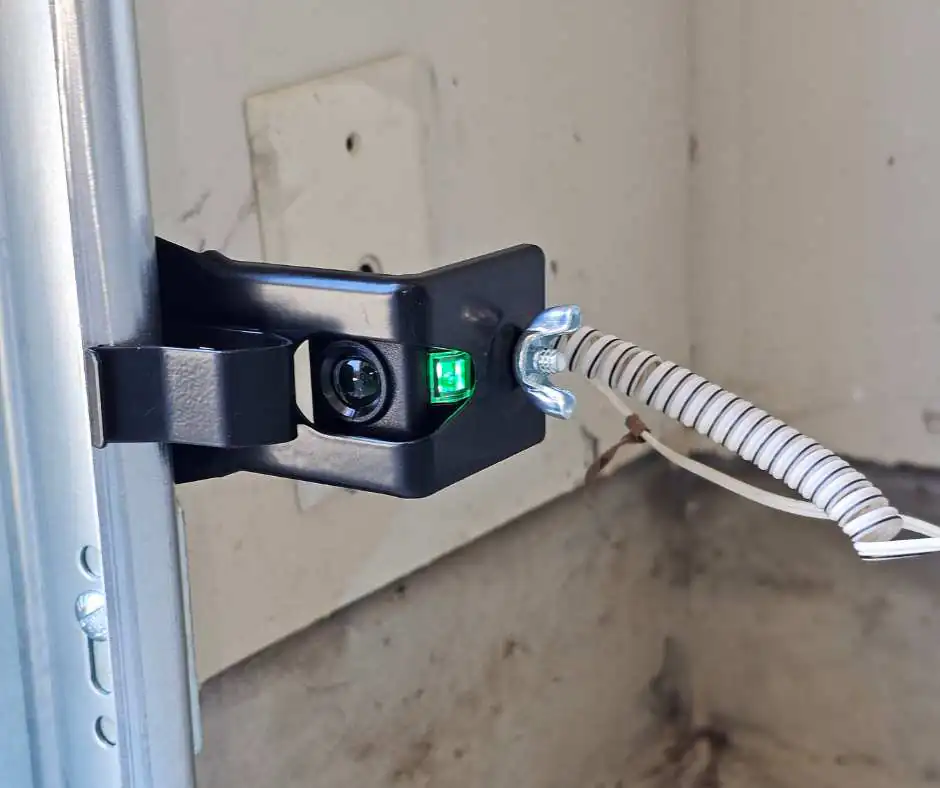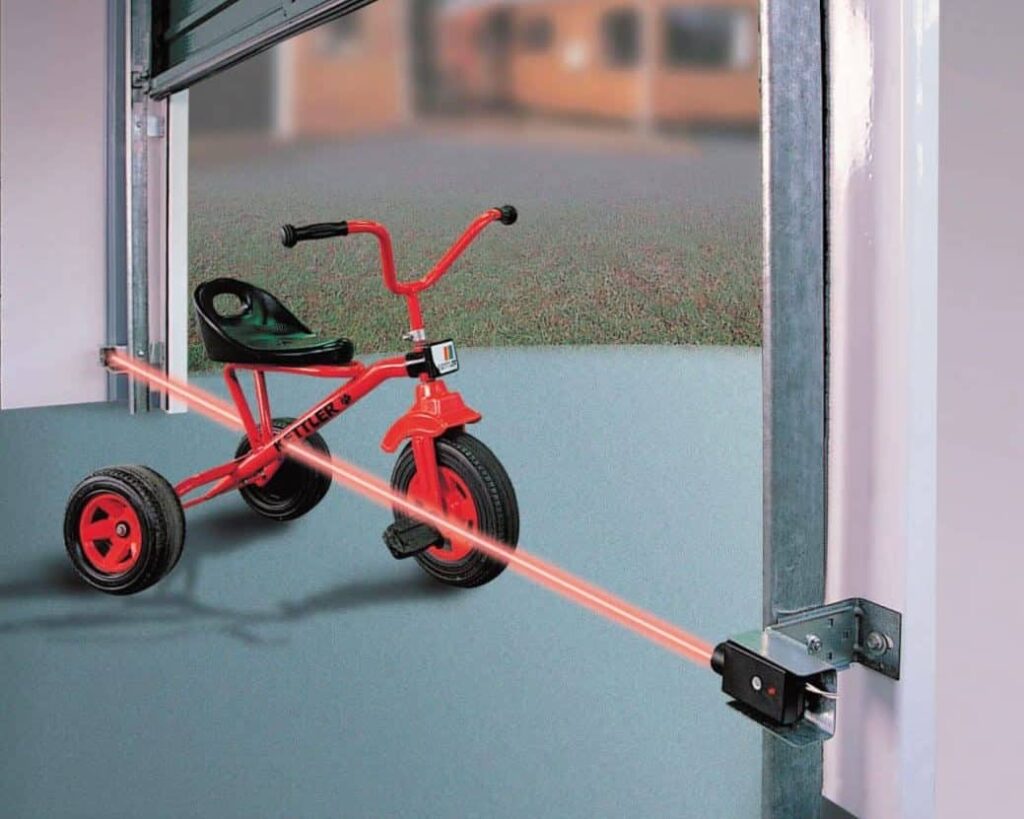Garage door sensors play an essential role in ensuring the safety and functionality of your garage door system. If you own a home in Lafayette, CO, you might wonder whether garage door sensors can burn out over time. These components are critical for preventing accidents and ensuring that the garage door operates smoothly, which makes it crucial to understand how they work and what could lead to their failure. Proper maintenance and timely troubleshooting can help avoid unnecessary inconveniences and costs.
This blog will analyze whether garage door sensors can burn out, what causes them to fail, and how Lafayette homeowners can maintain and troubleshoot their garage door sensors effectively. We will also analyze common symptoms of sensor failure, provide solutions, and address frequently asked questions. By the end, you will have a clear understanding of how to keep your garage door system functioning safely and reliably.

What is a Garage Door Sensor?
A garage door sensor is a small but vital safety device installed on both sides of your garage door, near the ground. It works by transmitting an infrared beam between two sensors—one is the transmitter, and the other is the receiver. If something, such as a person, pet, or object, breaks this beam while the door is closing, the system automatically stops the door and reverses its direction. This safety mechanism helps prevent accidents and property damage.
Garage door sensors are mandatory in many modern residential garage door systems due to their safety benefits. These sensors may seem simple, but they require proper installation, calibration, and maintenance to function correctly. Unfortunately, like other electronic devices, garage door sensors can eventually fail or burn out, leading to malfunctioning garage doors.
Can Garage Door Sensors Burn Out?
Understanding Sensor Failures
Many Lafayette homeowners ask, “Do garage door sensors burn out?” The short answer is yes. Garage door sensors are electronic devices, and as such, they can burn out or become defective over time. Various factors, including exposure to harsh weather, electrical issues, or physical damage, can cause the sensor’s components to degrade or stop functioning altogether. This is especially true in places like Lafayette, where seasonal weather changes can put added stress on these components.
Garage door sensors function continuously, sending and receiving infrared signals. With constant use, the electronic elements inside the sensor can start to wear out or become damaged due to electrical surges or external elements like water and dirt. When a sensor burns out, it stops emitting or detecting the infrared beam, which results in a non-functional garage door that refuses to close properly.
Signs That Your Garage Door Sensor is Burning Out
Being able to recognize the signs of a burned-out garage door sensor can save you from unexpected disruptions and repair costs. Some of the most common indicators include:
- Flickering or No Indicator Light: The majority of garage door sensors have an LED light that indicates their status. A steady green or red light often means the sensor is functioning correctly. If the light is flickering or completely off, it could be a sign that the sensor is malfunctioning or burned out.
- Garage Door Refuses to Close: If your garage door starts to close but then suddenly reverses direction, the sensors might be the culprit. The door typically reverses when the system believes there is an obstruction, which could indicate a sensor failure.
- Inconsistent Behavior: If the garage door closes normally at times but behaves erratically at others, this inconsistency could point to a sensor problem that may be due to wear and tear or the sensor burning out.
- Garage Door Opener Beeping: In some cases, the garage door opener will emit beeping sounds to indicate that there is a problem with the sensors. If you hear unusual noises, it could be related to sensor alignment or failure.
Causes of Sensor Burnout
Several factors contribute to the burnout of a garage door sensor, including:
- Electrical Surges: Electrical surges or spikes can damage the internal circuitry of the sensor. Using surge protectors can help protect your entire garage door system from these kinds of damages.
- Exposure to Elements: In Lafayette, CO, the weather can range from hot summers to snowy winters. Extreme weather conditions can take a toll on garage door sensors, leading to damage or burnout.
- Physical Damage: Garage door sensors are positioned close to the floor, which means they can easily be bumped or damaged by cars, bikes, or lawn equipment. Physical impact can loosen the wiring or damage the sensor’s casing, eventually leading to failure.
How to Troubleshoot and Fix Garage Door Sensor Issues
Check Sensor Alignment
One of the most common reasons for a garage door sensor malfunction is misalignment. Both sensors need to face each other directly for the infrared beam to connect correctly. Check that the indicator lights are steady—if one or both lights are blinking, adjust the sensors until the lights become stable.
Clean the Sensor Lenses
Dust, spider webs, or other debris can interfere with the infrared beam. Gently clean the lenses on both sensors using a soft cloth to remove any buildup that could be obstructing the beam. Avoid using harsh chemicals, as they can damage the lenses.
Inspect Wiring Connections
Carefully inspect the wiring that connects the sensors to your garage door opener. If you notice any frayed or disconnected wires, this could be causing the sensor to malfunction. Fix any loose connections, and if the wiring is significantly damaged, it may require professional replacement.
Test the System
After making adjustments, perform a functionality test by attempting to close the garage door. If it closes properly without reversing, the issue may have been resolved. However, if the problem persists, a more significant underlying issue may be present.
Replace the Sensors
If all troubleshooting methods fail, the only solution may be to replace the garage door sensors. You can purchase replacement sensors from a hardware store or online, but installation may require basic wiring skills. If you’re unsure about replacing the sensors yourself, it’s best to call a garage door professional.
When to Call a Professional
While DIY fixes are often effective, there are situations where professional intervention is necessary. If you have tried troubleshooting steps without success, or if you are uncomfortable dealing with electrical components, a professional garage door technician can help. An experienced technician will quickly diagnose the problem and determine whether the sensors need realignment, repair, or replacement.
In Lafayette, CO, Primos Garage Doors offers expert services for all garage door sensor issues. Whether it’s repair, maintenance, or replacement, their skilled technicians ensure your new garage door system operates safely and efficiently.

Preventing Garage Door Sensor Burnout
Regular Maintenance
Routine maintenance is key to preventing garage door sensor issues. Begin by checking the sensors regularly to ensure they are properly aligned—misaligned sensors can prevent the door from closing and could lead to bigger problems if not corrected. Sensors often come with indicator lights that provide a visual cue if something is wrong; usually, both sensors should show a steady light when they are correctly aligned. If one light is blinking or off, it’s a sign the sensors need adjustment.
Cleaning the sensor lenses is also important. Dust, cobwebs, and grime can accumulate over time, blocking the sensor’s infrared beam and potentially leading to malfunctions. Use a soft cloth to wipe the lenses gently, ensuring that you don’t scratch or damage them. Performing this maintenance step at least once a month will help the sensors stay in optimal working condition.
In addition to visual checks and cleaning, be sure to keep an ear out for unusual noises from your garage door opener. A noisy opener can be a sign of mechanical problems that might affect the sensors indirectly, so addressing these concerns early can prevent sensor burnout and keep your garage door functioning smoothly.
Install Surge Protection
Electrical surges can be a major cause of garage door sensor burnout. Surges from lightning strikes or fluctuations in the power grid can easily damage sensitive electronic components, including the sensors. Installing a surge protector is an excellent preventative measure to guard against such risks.
There are surge protectors designed specifically for garage door openers, and these can be easily installed to help safeguard both the opener itself and the sensors. Even a small investment in surge protection can provide valuable peace of mind, especially during stormy seasons when power fluctuations are more common. This is a simple yet effective way to prevent electrical damage that could otherwise lead to costly repairs or complete sensor replacement.
Protect Sensors from Damage
Physical damage to garage door sensors is another common cause of sensor failure. Sensors are typically installed a few inches off the ground, making them vulnerable to accidental bumps. To prevent damage, keep the area around the garage door sensors clear of items that could potentially knock them out of alignment or break them.
It’s also helpful to educate family members, especially children, about the location and importance of the sensors. Children might not understand how fragile these components can be, so taking a moment to explain where the sensors are and why they shouldn’t be touched or bumped can go a long way in preventing accidental damage. If your garage is a space for frequent activity, consider adding a small barrier or marker around the sensors to make them more visible and protect them from any rough play or movement.
Frequently Asked Questions About Garage Door Sensors

How do I tell if my garage door sensor is bad?
- Indicator Lights: Check the sensors’ indicator lights. If one or both are off or flashing, there may be an issue.
- Door Reversal: If the door starts to close but immediately reverses, the sensors could be misaligned or faulty.
- Manual Closing: If you have to hold the wall button to close the door, the sensors may not be working correctly.
Should both sensors on the garage door be green?
- In most systems, one sensor emits a green light, while the other may show amber or another color. Both lights should be steady. If one is off or blinking, there could be an alignment or power issue.
Will any sensor work with any garage door opener?
- No, garage door sensors are typically brand-specific and need to be compatible with your opener model. Always check the manufacturer’s specifications before replacing sensors.
How do you adjust garage door sensors?
- Align the Sensors: Loosen the brackets holding the sensors and adjust them until the indicator lights are steady.
- Secure the Position: Once aligned, tighten the brackets to keep the sensors in place.
- Test the Door: Ensure the door operates correctly without reversing unnecessarily.
How do you recalibrate a garage door sensor?
- Clean the Sensors: Wipe off any dirt or debris that might block the beam.
- Realign the Sensors: Adjust them so that their indicator lights are steady and aligned.
- Reset the Opener: Unplug the garage door opener for 30 seconds, then plug it back in to reset the system.
- Test Operation: Open and close the door to ensure the sensors are working properly.
Conclusion
Garage door sensors are an essential component of your garage door system, keeping you, your family, and your property safe. They can burn out due to electrical issues, physical damage, or environmental exposure, which is why recognizing the signs of sensor failure and knowing how to address them is critical for homeowners in Lafayette, CO. Regular maintenance and timely troubleshooting can help prevent sensor problems, but professional help may be necessary in some cases. If you notice issues with your garage door sensor, don’t hesitate to contact experts who can help.
For Lafayette homeowners experiencing garage door sensor problems, Primos Garage Doors is here to help. With expertise in garage door repairs, maintenance, and installation, Primos can ensure your garage door is functioning safely and efficiently.
End Note
Primos Garage Doors is committed to providing high-quality service and customized garage door solutions to homeowners across Lafayette, CO, and beyond. With a focus on customer satisfaction, our team strives to meet your unique needs with exceptional products and services that deliver durability, quality, and style. Explore our garage door parts and openers, or learn more about our residential garage doors to find the perfect fit for your home.
Whether you need commercial garage doors, want to see examples of our work in our photo gallery, or are looking for more tips and advice on garage door maintenance, check out our blog. Hear what our satisfied customers have to say by visiting our reviews page, or contact us today to schedule a consultation or service. Let us help you make a statement with your garage door!


